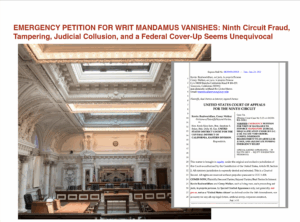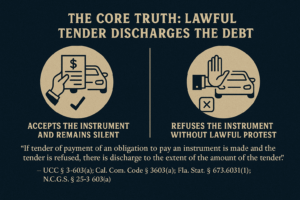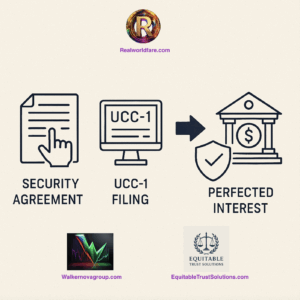In the complex web of legal definitions, statuses, and commercial roles, few questions are more misunderstood than whether a U.S. citizen qualifies as an authorized representative of the United States. While mainstream belief often blurs the line between identity and agency, a closer look at statutory law, agency principles, and commercial reality reveals a sharp and critical distinction.
⚖️ Legal Status of a “U.S. Citizen”
Under 8 U.S.C. § 1401, a U.S. citizen is:
-
A person born or naturalized in the United States, and
-
Subject to its jurisdiction.
This status is created by statute and governs one’s participation in the federal franchise system—Social Security, IRS tax liabilities, passports, military draft, and other civil obligations. A U.S. citizen is, in essence, a beneficiary and subject of the corporate United States (see: United States v. Wong Kim Ark, 169 U.S. 649 (1898); 28 U.S.C. § 3002(15) – United States as a “federal corporation”).
🛑 What Is an “Authorized Representative”?
An authorized representative is a legal agent empowered to act on behalf of a principal—typically by contract, statutory delegation, or written authorization. In the context of the United States government, an authorized representative includes:
-
Federal officers or employees acting under delegated authority,
-
Attorneys licensed to represent government interests,
-
Agents appointed via power of attorney or special commission,
-
Officers acting under military, civil, or diplomatic orders.
See relevant authorities:
-
Federal Rules of Civil Procedure Rule 17(c) – Capacity to sue or be sued through representatives
-
31 U.S.C. § 3729 – False Claims Act (qui tam “relators” acting as authorized agents of the United States)
-
5 U.S.C. § 552a(b) – Privacy Act protections involving representatives
Without official appointment, contractual delegation, or a letter of authority, no person is presumed to be a representative of the United States.
⚠️ U.S. Citizens Are Not Automatically Agents of Government
Contrary to the assumption that “citizenship equals representation,” a U.S. citizen has no inherent agency relationship with the federal government. In fact:
-
The citizen is the regulated party, not the regulator.
-
The citizen is the subject, not the sovereign.
-
The citizen is the taxpayer and licensee, not the issuer of licenses.
A U.S. citizen is the end-user of services provided by the U.S. government’s corporate structure—not its legal or contractual representative. No lawful presumption of representation arises from citizenship alone.
🧾 The All-Caps NAME and the Real Representative
In commercial and equity law, the U.S. citizen NAME (in ALL CAPS) is treated as a legal fiction—an ens legis. It is:
-
A transmitting utility (see: UCC § 9-102),
-
A decedent estate or trust entity,
-
The debtor in virtually all commercial contracts with government agencies.
The living man or woman—properly styled in upper/lowercase—may act as the authorized representative of that legal fiction (e.g., under UCC 3-402, 3-501, or 1-103). But that is a private commercial relationship, not a federal appointment.
Thus, the only “authorized representative” role the average person may legally assume is representative of the ALL CAPS corporate entity the United States created for commercial administration—not of the United States itself.
✅ Final Word: No Representation Without Delegation
To be an authorized representative of the United States, one must:
-
Hold a valid appointment, delegation, or commission;
-
Act under specific statutory or regulatory authority;
-
Operate in a fiduciary or agency role on behalf of the United States.
Absent such conditions, a U.S. citizen is not an agent of the United States, but rather its subject or its legal fiction’s beneficiary. Knowing the difference is essential in law, contracts, and courtrooms—because jurisdiction begins with status, and status determines standing.




